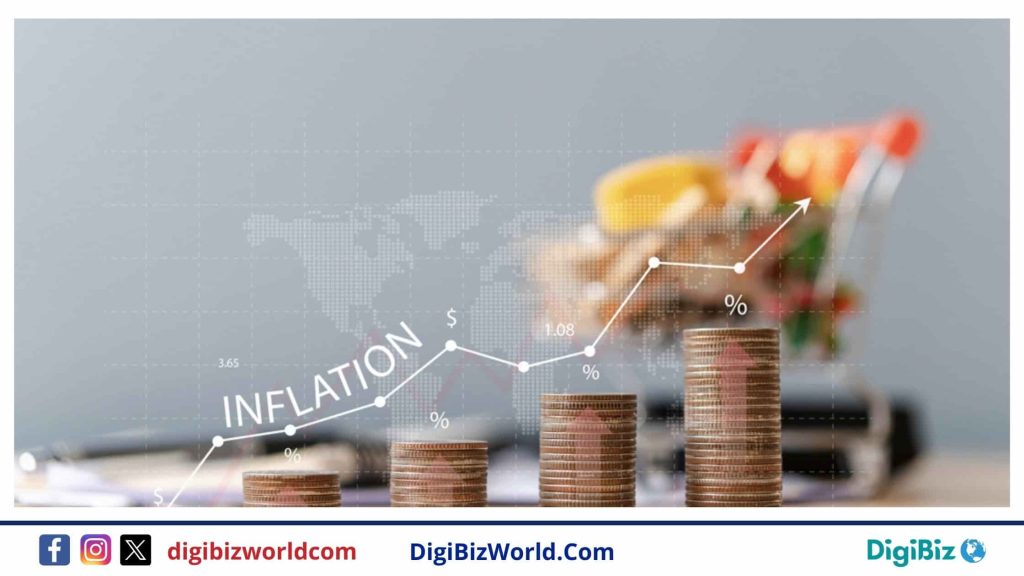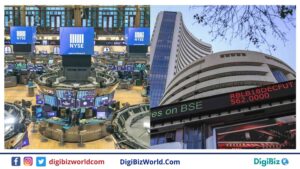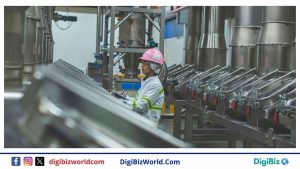The Impact Of Inflation On The Economy

Inflation is defined as the rate at which the general level of prices for goods and services rises, leading to a decrease in the purchasing power of money. The impact of inflation on the economy is significant, affecting various aspects such as the cost of borrowing, income distribution, and international trade competitiveness. The most common methods of measuring inflation are the Consumer Price Index (CPI) and the Producer Price Index (PPI). The CPI and PPI track the price changes paid by consumers and producers, respectively. These measurements help policymakers and economists gauge the extent of inflation and implement strategies to manage its economic effects. This blog delves into the multifaceted effects of inflation on the economy, exploring how it influences overall economic health.
Check out The 10 Effects of Inflation on the Economy
1. Cost of Borrowing
As inflation rises, central banks often increase interest rates to curb spending and control price levels. Higher interest rates make borrowing more expensive for both consumers and businesses. This can lead to higher mortgage, loan, and credit card payments, reducing disposable income and spending power. For businesses, the increased cost of financing can deter investment in growth and expansion. This tightening of credit can slow economic activity, potentially leading to reduced growth and even a downturn if inflation remains unchecked.
2. Erosion of Purchasing Power
Inflation erodes purchasing power by increasing the prices of goods and services. This effect is particularly concerning when wages do not keep pace with rising prices, forcing individuals and households to cut back on non-essential spending. The erosion of purchasing power can lead to a decline in overall economic demand, as people prioritize necessities over discretionary items. This reduction in consumer spending can slow economic growth, affecting businesses that rely on consumer demand for their products and services.
3. Income Redistribution
Inflation often leads to income redistribution, as its effects are felt unevenly across different population segments. Fixed-income earners, such as retirees, suffer because their income does not increase with rising prices. Meanwhile, workers in sectors with strong demand or those able to negotiate wage increases may see their incomes rise, potentially widening the gap between higher and lower earners. Borrowers benefit as the real value of their debt decreases, making repayments easier, while lenders lose out as the money repaid is worth less.
4. Impact on Exports and Imports
Inflation can significantly affect a country’s exports and imports, altering its trade balance. When inflation rises, domestically produced goods often increase, making exports more expensive and less competitive in global markets. This can lead to a decline in export volumes, potentially reducing foreign revenue and weakening the economy. Inversely, it increases the cost of imports, leading to higher input costs for businesses relying on foreign goods and materials. This can result in a negative trade balance and further inflationary pressures if the country heavily depends on imported goods.
5. Business Investment and Uncertainty
High inflation creates uncertainty, making it difficult for businesses to plan long-term investments. Predicting future costs and revenues becomes challenging, leading to potential delays or reductions in capital expenditures. This uncertainty can lead to a cautious approach, where companies delay or reduce investments in new projects, equipment, and technology. Additionally, the frequent need to adjust prices can divert resources away from productive activities, further hindering economic growth and efficiency.
6. Impact on Businesses and Consumers
The impact of inflation on businesses and consumers is profound and interconnected. For businesses, rising input costs such as labor, raw materials, and transportation can squeeze profit margins if these costs cannot be passed on to consumers. This often leads to higher prices for goods and services, which consumers must bear. As a result, consumers experience a reduction in purchasing power, forcing them to prioritize essential spending and cut back on discretionary items.
7. Tax Bracket Creep
Inflation can push taxpayers into higher income tax brackets, a phenomenon known as tax bracket creep, without a real increase in their purchasing power. As inflation increases, wages may rise nominally, pushing individuals into higher tax brackets even if their real purchasing power hasn’t improved. This effectively increases their tax burden, reducing disposable income and potentially leading to decreased consumer spending. Over time, tax bracket creep can lead to increased dissatisfaction and calls for tax reform, especially in periods of persistent inflation.
8. Raises Interest Rates
When inflation rises, central banks typically respond by raising interest rates to curb excessive spending and stabilize prices. Higher interest rates make borrowing more expensive for consumers and businesses, which can reduce demand for loans, mortgages, and credit. However, higher interest rates can also slow economic growth, as they discourage investment and spending. Additionally, inflation can affect tax revenues and expenditure needs, complicating budget planning and fiscal management. The balance between controlling inflation and maintaining economic growth is a delicate task for policymakers.
9. Government Debt and Fiscal Policy
Inflation can reduce the real value of government debt, making it easier to repay. However, if inflation is high, it can lead to increased interest rates, raising the cost of future borrowing. This can constrain fiscal policy, as governments may need to allocate more resources to interest payments rather than public services or investments. Additionally, inflation can affect tax revenues and expenditure needs, complicating budget planning and fiscal management.
10. Cause Painful Recessions
If inflation gets out of control, the measures taken to rein it in, such as raising interest rates, can lead to a recession. When inflation becomes excessively high, central banks often raise interest rates sharply to control it, which can lead to a significant slowdown in economic activity. The increased cost of borrowing discourages both consumer spending and business investment, leading to reduced economic growth and potentially triggering a recession. Managing inflation carefully is crucial to avoiding such severe economic downturns.
Understanding the multifaceted effects of inflation on the economy is crucial for individuals, businesses, and policymakers. From eroding purchasing power and increasing borrowing costs to impacting income distribution and international trade, inflation influences every aspect of economic life. Accurate measurement through indices like the CPI and PPI allows for effective monitoring and management of inflation. By comprehensively grasping these dynamics, we can better prepare for and mitigate the challenges posed by inflation, ensuring more stable and sustainable economic growth.








